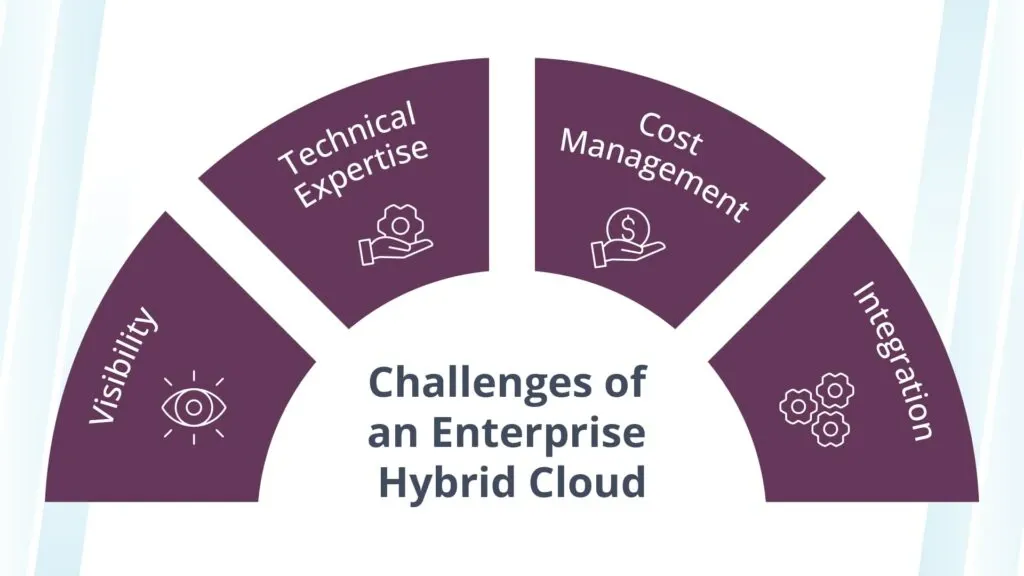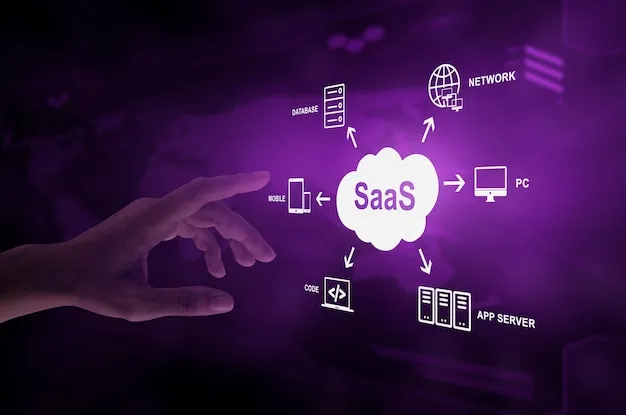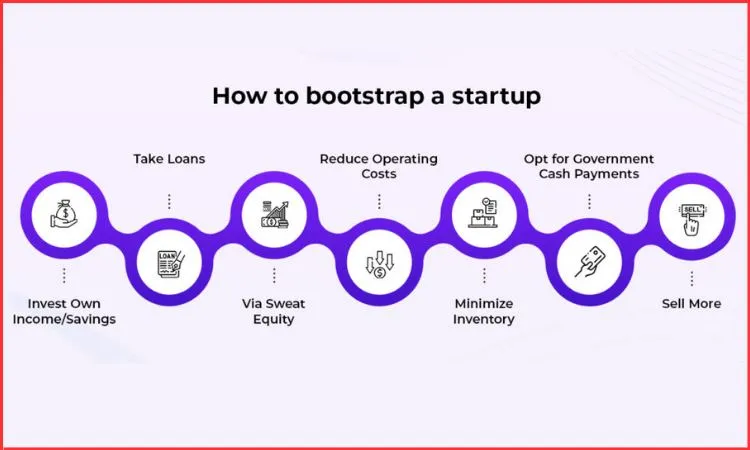Hybrid cloud isn’t just a buzzword anymore—it’s the backbone of digital transformation for today’s enterprise businesses. As companies scale operations, handle vast amounts of data, and adapt to fast-changing market demands, hybrid cloud solutions provide the flexibility, control, and power needed to stay ahead of the curve.
But what exactly is hybrid cloud, and why should enterprise-level businesses pay attention? Let’s dive in.
Understanding Hybrid Cloud Architecture
Key Components of Hybrid Cloud
At its core, a hybrid cloud blends on-premises infrastructure (private cloud) with public cloud services. These environments communicate seamlessly, thanks to sophisticated orchestration and integration layers that ensure data and workloads flow securely and efficiently.
Public vs. Private Cloud in Hybrid Environments
The public cloud (think AWS, Azure, Google Cloud) offers cost-effective scalability and flexibility. Meanwhile, the private cloud (your internal servers or dedicated cloud) delivers security and control. Together, they allow businesses to choose the best of both worlds for each workload.
Role of Edge Computing
Edge computing is becoming an integral part of hybrid architectures. By processing data closer to the source (like IoT devices or remote locations), edge computing reduces latency and speeds up decision-making—crucial for industries like manufacturing or logistics.
Read also: Enterprise Business Model Examples
Benefits of Hybrid Cloud for Enterprise Businesses
Flexibility and Scalability
Enterprise workloads can vary wildly in size and scope. Hybrid cloud allows companies to scale quickly without the cost of upgrading internal systems. During peak demand, public cloud handles overflow, while sensitive tasks stay protected in private environments.
Cost Optimization
Why pay for resources you don’t always need? Hybrid models let businesses only use—and pay for—what they need, when they need it. It’s like renting a sports car for a road trip instead of buying one you only use twice a year.
Enhanced Security and Compliance
Enterprises handle sensitive customer data and must follow strict regulations. With hybrid cloud, you can store and process this data on secure, compliant private servers while enjoying the agility of public cloud for less sensitive workloads.
Business Continuity and Disaster Recovery
Hybrid cloud supports robust disaster recovery (DR) strategies. If a data center fails, workloads can shift to the cloud with minimal downtime. This redundancy ensures business continuity without a massive upfront investment.
Challenges of Implementing Hybrid Cloud
Integration Complexities
Connecting disparate systems isn’t always plug-and-play. Different platforms, tools, and APIs can make integration a real headache. Enterprises need a solid architecture plan to bridge these systems effectively.
Data Security Concerns
Security is still a top concern. You must manage different security protocols across environments while ensuring data encryption, identity management, and access control are airtight.
Network Latency and Performance Issues
Some applications are latency-sensitive. Hybrid cloud performance depends heavily on network speed and infrastructure, which can pose challenges for real-time services like video conferencing or financial trading.
Read also: How To Transition From Startup To Enterprise
Key Use Cases for Hybrid Cloud in Enterprises
Data Backup and Disaster Recovery
Hybrid cloud shines here. Use the public cloud for automated, scalable backups, while keeping critical data in-house for immediate access.
Seasonal Demand and Traffic Spikes
Retailers during Black Friday? Tax software during April? Hybrid cloud helps businesses handle sudden demand without over-investing in permanent infrastructure.
Regulatory Compliance Requirements
Financial institutions and healthcare providers can keep regulated data on private cloud while innovating and building applications on the public side.
Development and Testing Environments
Dev and test environments benefit from the cloud’s elasticity. Once an app is stable, it can be deployed in a private cloud for better control.
Choosing the Right Hybrid Cloud Strategy
Assessing Business Needs
No one-size-fits-all solution exists. Enterprises must audit current infrastructure, app needs, security requirements, and budget before diving in.
Selecting the Right Cloud Providers
Choosing a provider is like choosing a business partner. Look for ones with proven hybrid capabilities, strong support, and a shared vision for growth.
Creating a Migration Roadmap
Migrating to hybrid cloud isn’t a weekend project. Break it into phases—starting with non-critical workloads—to reduce risk and train teams along the way.
Hybrid Cloud Management Tools and Platforms
Popular Tools (VMware, Azure Arc, etc.)
Platforms like VMware Cloud Foundation, Azure Arc, and Red Hat OpenShift offer streamlined management and orchestration across hybrid environments.
Monitoring and Analytics
Visibility is key. Tools like Datadog or New Relic offer performance insights, cost tracking, and system health monitoring across hybrid systems.
Security and Access Control
Identity management tools such as Okta or Microsoft Entra help manage secure access across environments, ensuring compliance and governance.
Future Trends in Hybrid Cloud Solutions
AI and Automation in Cloud Management
Expect more AI-powered automation for load balancing, resource allocation, and incident response—making IT teams more efficient and proactive.
Rise of Multi-Cloud and Interoperability
Hybrid is just the start. Enterprises are moving toward multi-cloud strategies, using multiple public clouds for resilience and flexibility.
Sustainable Cloud Infrastructure
Green computing is in. Cloud providers are pushing for energy-efficient data centers, and hybrid cloud gives businesses more control over their carbon footprint.
Conclusion
In today’s fast-paced, data-driven world, hybrid cloud solutions for enterprise businesses offer the agility, control, and resilience organizations need to thrive. It’s not just a trend—it’s the future. By carefully strategizing, investing in the right tools, and continuously optimizing, enterprises can unlock new levels of performance, innovation, and efficiency.










